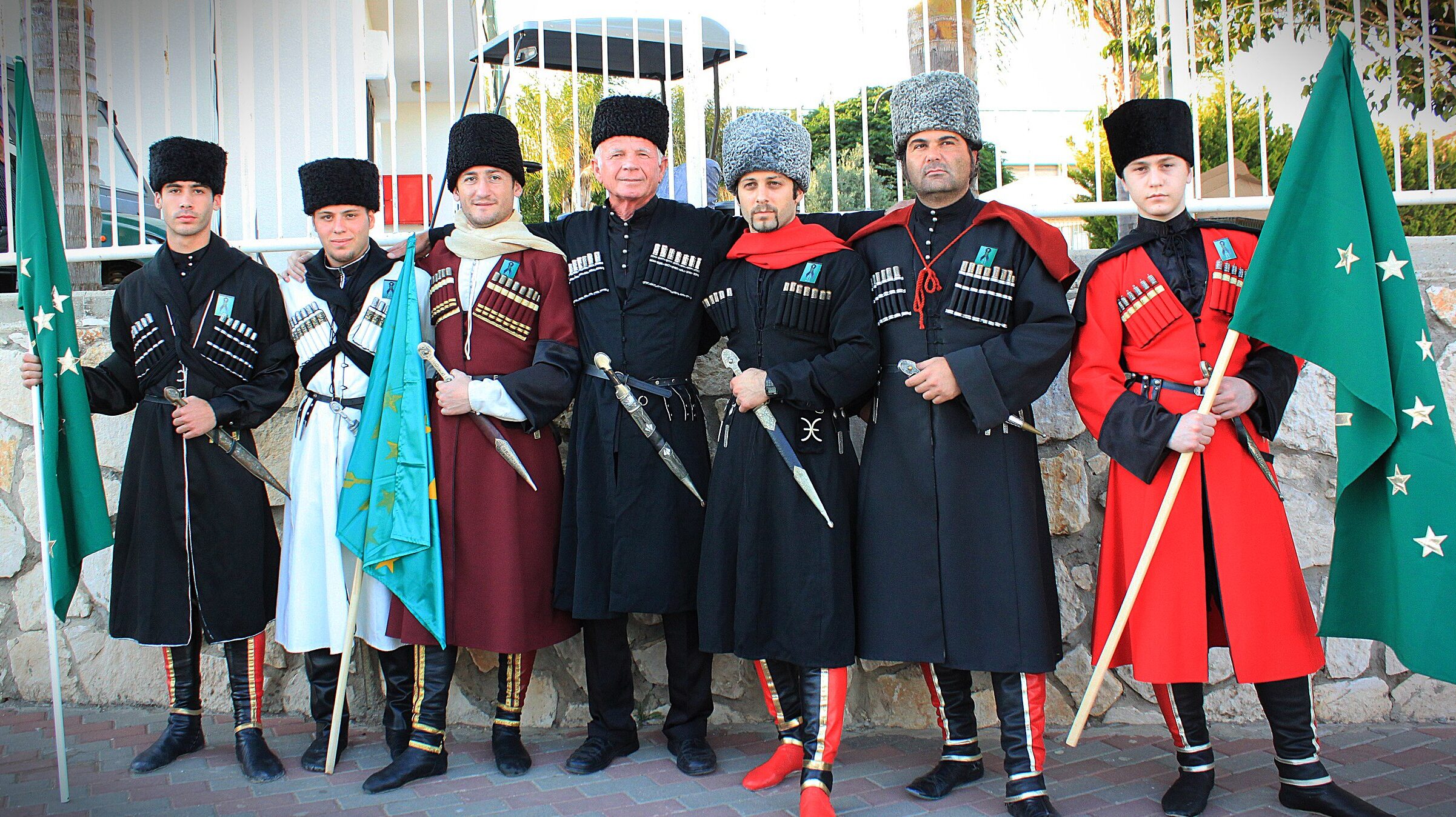Damascus Hosts First Circassian Day of Mourning Event in Decades
[Damascus] For the first time since the outbreak of the Syrian conflict and the fall of the Assad regime, members of Syria’s Circassian community commemorated the Circassian Day of Mourning on Wednesday. The event included a peaceful march and symbolic sit-in in the capital city of Damascus to remember the massacres committed by czarist Russia in 1864 and to call for international recognition of those atrocities.
The demonstration began at 4:30 p.m. in Tishreen Park and continued toward Umayyad Square, where hundreds of Circassians and Syrian supporters gathered for an open sit-in at 5 p.m.
Participants described the event as a symbolic act intended to connect the crimes of the past with the suffering of the present.
This holiday season, give to:
Truth and understanding
The Media Line's intrepid correspondents are in Israel, Gaza, Lebanon, Syria and Pakistan providing first-person reporting.
They all said they cover it.
We see it.
We report with just one agenda: the truth.


The Circassians are an indigenous Caucasian people who lived in the North Caucasus for centuries before being subjected to a brutal campaign by czarist Russia. After over 100 years of war, the campaign culminated in 1864 with massacres that killed hundreds of thousands. Those who survived were forcibly deported across the Black Sea to territories of the Ottoman Empire, including present-day Syria. The journey was deadly—thousands perished from hunger, disease, and harsh conditions.
In Syria, the Circassian community settled in cities such as Damascus—particularly in the Rukn al-Din district—as well as Homs, Daraa, and Quneitra. While integrating fully into Syrian society, Circassians preserved their Adyghe language and cultural heritage. Over the decades, they became prominent in education, the arts, and sports, and held significant positions in Syria’s military and security institutions.
The day of mourning sparked considerable attention on social media, where activists and citizens expressed solidarity with the Circassian cause. Many drew parallels between the historic suffering of the Circassians and the more recent experiences of displacement faced by millions of Syrians during the country’s ongoing war.
“Damascus, a city that has suffered from displacement, now becomes a voice for the Circassians who endured the same tragedy,” activist Abdul Qader Safi, who took part in both the march and sit-in, told The Media Line. “It’s a reminder that the pain of exile knows no borders or eras.”
Safi added that the event carried a dual significance: it served as a remembrance of a historical catastrophe with enduring consequences, and as a political and humanitarian appeal for international recognition of the Circassian genocide. It also reinforced broader calls for historical justice and solidarity among communities that have endured collective trauma.

